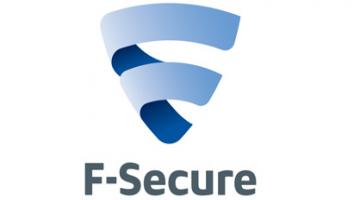New one-button tool from online security leader F-Secure helps people keep their Internet traffic heading in the right direction.
The Internet works in mysterious ways for many people, and that’s  something that attackers can use to their advantage. But Internet users now have an easy-to-use tool to help prevent themselves from becoming part of an online scam. The one-button Router Checker, developed by F-Secure, checks people’s Internet set-ups to help protect them from having their web traffic misdirected to websites that can spread malware or steal their personal information.
something that attackers can use to their advantage. But Internet users now have an easy-to-use tool to help prevent themselves from becoming part of an online scam. The one-button Router Checker, developed by F-Secure, checks people’s Internet set-ups to help protect them from having their web traffic misdirected to websites that can spread malware or steal their personal information.
Router Checker makes it easy to identify altered Internet settings that can let attackers manipulate what people see and do online. Attacks that change router or Internet settings are popular amongst hackers because it allows them to reach large numbers of people without being noticed. According to F-Secure’s Labs, over 300,000 home or office routers were discovered to have altered settings in 2014, with each router potentially serving multiple computers, mobile phones and other devices.
Attacks like these are difficult to notice because they can manipulate people in very subtle ways. “Attacks that target Internet settings often go unnoticed because they don’t really have obvious symptoms for people to pick up on. People will suddenly see more ads, or they’ll be misdirected to a dangerous website that looks and feels safe”, says F-Secure Security Advisor Sean Sullivan. “This makes diagnosing these problems important, and Router Checker is all about making the diagnosis accessible and easy so that people don’t have to worry”.
Attackers try to manipulate people’s online behavior by changing their Internet settings to direct their traffic through “rogue DNS servers”. DNS Servers help computers and other devices find each other on the Internet. Attackers make money by setting up rogue servers to misdirect Internet users and connect them with websites that can contain fraudulent advertising, spread malware, or even trick them into revealing personal information. The new Router Checker makes sure the settings on people’s computers, phones, and even their routers connects them to safe DNS servers chosen by users or their Internet service providers.
According to Sullivan, making this information available to people at the click of a button makes it easy for them to make sure their computers stay healthy. “People rely on DNS servers to get things done on the Internet, but most people don’t know anything about the DNS they use. You’ve got to be able to trust these things to enjoy being online, and Router Checker builds that trust by letting people find out who handles their Internet traffic.”
Router Checker’s accessibility is a key feature because it gives people a stress free way to make sure their Internet set-ups are healthy. Unhealthy set-ups can usually be fixed by updating software or resetting a router, but the problem can have serious consequences if it goes unnoticed. Sullivan recommends taking advantage of the tool by running it as part of a spring-cleaning routine or as a go-to solution if you think there’s a problem. Router Checker is free to use and available now at www.f-secure.com/router-checker.








